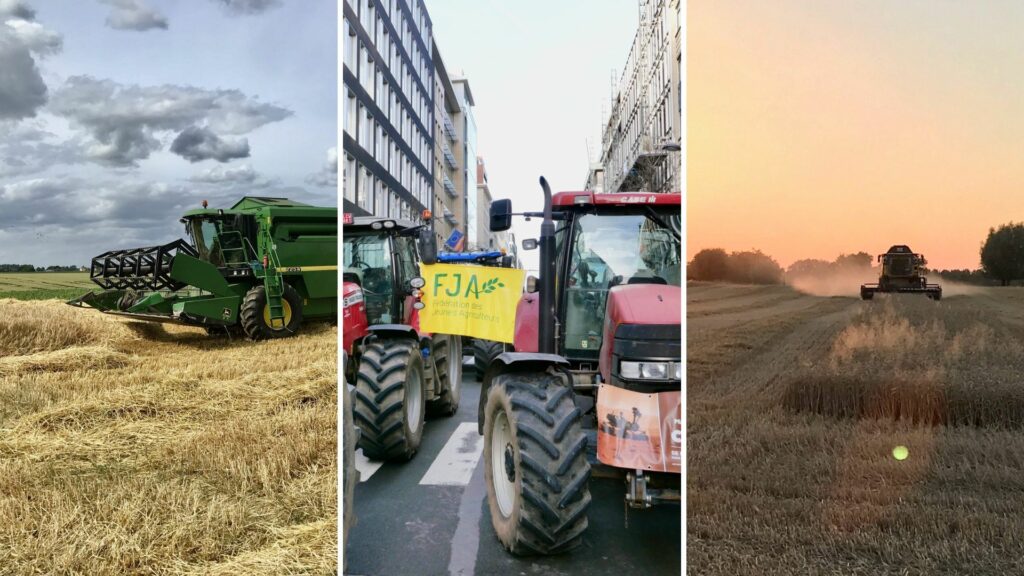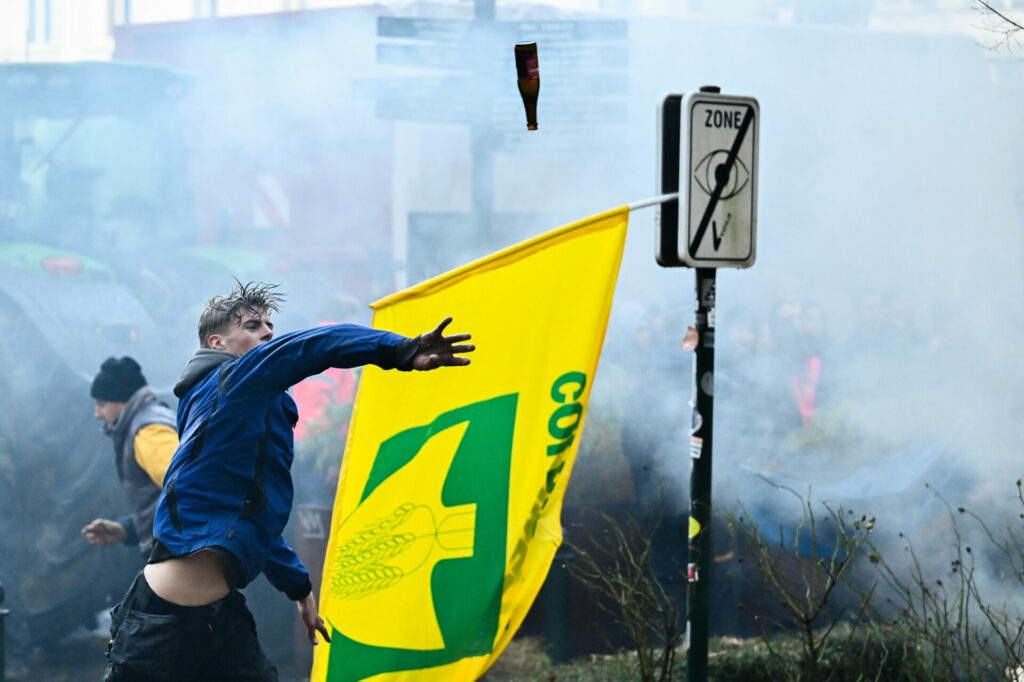As Brussels brushes itself off after Thursday's invasion of 1,300 tractors that took the capital by storm, city life resumes with a sense that the circus has left town.
Yesterday's protest certainly made an impression, with public opinion divided between recognising farming as key to national survival whilst others were incensed by the dismantling of a statue outside the European Parliament. As so often with mass demonstrations, fringe acts of public disorder quickly colour the general perception of the movement.
Having been to the protests myself, I can attest to the din: air cannons and fire-crackers made sure that anyone in the area took notice of the unusual occupants (in case they had missed the armada of hulking four-wheelers packing every street). Then again, it was hardly a war zone, as some commentators who weren't there tried to make out.
Adding to the noise was the breadth of demands being made. As discussed in this week's previous Briefs, the show of unity within the agricultural community belies the range of activities within the sector. Whilst Thursday's actions took aim at EU regulations that afflict growers of all kinds and nationalities, their anger is today turning back to targets closer to home.
In Belgium this means blocking the distribution hubs of supermarkets, which unions mark out as guilty of a race to the bottom by promoting the consumer habit to buy the cheapest food rather than products that give a fairer deal to farmers. It's a valid concern, with household food budgets plummeting in just a few generations.
Where today, EU households spend an average of 14% of disposable income on food and non-alcoholic drinks, this was around one-third of spending 50 years ago. With this change has come a shift in how we interact with what we eat, the produce of the fields transformed, packaged and, trucked into retail spaces that pay no homage to the primary producer. The overall experience keeps farming out of sight.
This disconnect plays a part in yesterday's shock factor and working out a fairer deal will likely take generations to achieve. But patience is wearing thin. Do you feel for the farmers? Let @Orlando_tbt know.
Belgium in Brief is a free daily roundup of the top stories to get you through your coffee break conversations. To receive it straight to your inbox every day, sign up below:
1. Sex and the City? Brussels municipality vows to be first 'single-friendly' local authority
Woluwe-Saint-Pierre in Brussels has become the first municipality in Belgium (and Europe) to commit to taking single people into account in all of its policies, by evaluating the impact they have on one-person households. Read more.
2. 'Nothing changes. Now we block the country': Farmers defiant after EU talks 'failure'
After a week of traffic chaos and more than 1,300 angry farmers in tractors gathering in Brussels as the EU summit took place on Thursday, the protestors were heard by Belgian Prime Minister Alexander De Croo and the presidents of the European Commission and Parliament. Read more.
3. What to do in Brussels this weekend: 2 - 4 February
Feeling unmotivated to leave the comfort of your sofa this weekend, or are you feeling energised but lacking creativity on what to do? Don't worry – with our wide range of activities in Brussels and beyond this weekend you'll be spoilt for choice! Read more.
4. Empty shelves: Supermarkets hit as farmers target distribution centres
Whilst the tractors that filled Brussels on Thursday have withdrawn from the capital, some groups of Belgian farmers are persisting with more targeted blocks, preventing access to ports and distribution centres, raising fears of empty supermarket shelves. Read more.
5. 'Unsafe': Nearly 2,000 truck drivers stranded in Zeebrugge as farmers block port
While the farmers' protest came to a head in Brussels on Thursday, the tractor blockades have not all disappeared. In addition to the shut-off distribution centres, the continuing blockade at the port of Zeebrugge has left some 2,000 truck drivers stranded in the area. Read more.
6. Students organise party on train to protest SNCB fare hikes
French-speaking students and trade union youth branches partied on-board a train on Thursday in protest of Belgian National Railway Company (SNCB) price hikes. Read more.
7. One in three people in Brussels cannot afford a week's holiday
Taking a short trip or two-week holiday may be commonplace for most. However, almost 2.5 million people in Belgium cannot afford to take time off – even for just one week. In Brussels, one in three people do not go on holiday. Read more.


